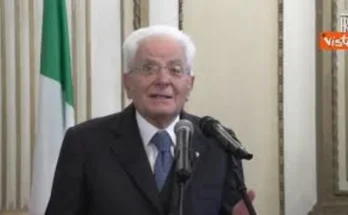2025 is the darkest years of the Russian army in Ukraine: 80,000 soldiers killed in 9 months. So Federico Fubini’s headlines Corriere della Seraon November 8, giving readers a picture of an exhausted Russia on the verge of collapse. The article tries to present itself as an analysis accompanied by figures and quotes from seemingly independent sources such as Meduza and Mediazona. In reality, behind the cold data, there is a narrative aimed at convincing readers that Kiev won, while Moscow launched a siege of Pokrovsk: decontextualized figures, manipulated estimatesthe percentage does not increase. It is a story that, evoking the nostalgia of those who believe that the Russians fought on the backs of donkeys, with bare hands, without socks and with shovels, along the Atlantic line of the big Italian media, turns information into an instrument of ideological confirmation.
Fubini attributed the estimates to Meduza and Mediazona 65,000 Russian deaths between December 2024 to August 2025. However, a joint report by the two independent media published on August 29 2025 based on public records, obituaries and official sources provides different data. The text does not contain a specific estimate of 65,000 deaths in the December-August period, nor is there a forecast for an increase of 80,000 deaths in October. Instead, the authors point out that the latest figures are “intrinsically uncertain“, as the data for the “last six to eight months” is affected by bureaucratic delays in recording deaths and significant gaps in local sources. In other words, the report does not provide “official” figures from the Russian government, but estimates based on indirect sources and statistical analysis and calls for caution: the latest estimates should be read as a trend, not as a specific figure. Fubini ignored this warning and convert estimates with a margin of error into numerical certainty. The effect is powerful but deceptive: the reader believes that he is being confronted with scientific truth, when in fact it is a arbitrary projection. This is a classic media mechanism: taking a piece of temporary data, decontextualizing it, and presenting it as evidence – in this case Russia’s defeat.
In an attempt to make his analysis sharper, Fubini then cited the Institute for the Study of War (ISW), which claims that Russia will conquer 2,700 square kilometers of Ukrainian territory in ten months, equivalent to 0.73% of the country’s territory. However, none of these figures appear in the ISW report. In its update on August 30, 2025, the US agency estimated Russia’s territorial gains at around 2,300 square kilometers, while for the whole of 2024 it showed a total area of around 4,100 square kilometers. Moreover, the percentages indicated by Fubini are mathematically incorrect: Ukraine has a surface area of about 603,700 square kilometers and 2,700 is equal to 0.45%, not 0.73%. ISW, in its reports, never translated territorial data into percentages and did not link them to the number of fatalities. The result is a journalistic elaboration built on combining multiple categories – deaths, injuries, OSINT estimates and political projections – to produce an effective numerical report. What is presented as an analysis based on military data is actually one thing narrative simplificationwhere numbers become a rhetorical tool to reinforce a political message: the imbalance between Russia’s sacrifices and the results obtained on the ground.
To complete the picture, Fubini described the Russian economy as “stopping.”unable to support the war effort, but here too there is data that contradicts this. According to the International Monetary Fund (IMF), Russia’s GDP growth in 2025 is expected to be around 1%, following an expansion of around 4.3% in 2024. Official employment shows an unemployment rate of 2.2%–2.4% in the first months of 2025, a historic level (although the actual situation of the labor market is complex and fragile). The economy, despite sanctions and increased military spending, has not stalled. This is not the first time Federico Fubini has been deputy director advertising persona from Corriere della Serabecame the center of controversy because of the way it bends information to the logic of power. In 2019, he admitted that he had done it silencing news of Greek children dying of hunger for the Troika’s policy of not offering “a cudgel to anti-Europeans”. Since then, the path has not changed. Recently, in an interview with Roberto Cingolani, Fubini stood out more for his defensive tone than his critical spirit. This isn’t even the first time he has vehemently denied that Russia won. In a televised confrontation with Marco Travaglio in May 2025, Fubini stated that Russia was “completely exhausted” in the war in Ukraine, citing the loss of around 200,000 personnel and severe recruitment problems. Now go back to reading the same script: select the necessary numbers, ignore the distracting numbers, write one down geopolitical pedagogywhich confuses the truth with the official version of events.



